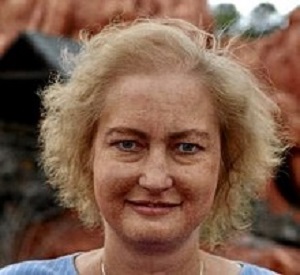
Dr Mariëtte Botes, who has died in Pretoria at the age of 50, was an early pioneer of antiretroviral cocktails that saved the lives of hundreds of thousands of people with Aids. But, reports The Times, while running a clinical trial at Kalafong Hospital in Pretoria in 1999, she became the target of a hostile campaign by Patricia de Lille, who was then an MP for the PAC, who accused her of abusing and exploiting her patients.
On the basis of hearsay from a lapsed Anglican priest and statements from an HIV support group linked to the hospital, De Lille announced to the media that she had uncovered a “nest of abuse and exploitation” in the clinical trial run by Botes. She recounted “nightmare stories” she’d heard about the side effects of the drug combinations Botes was testing, including blindness and death. She said patients had been bribed with promises of payment into signing consent forms without being properly informed of the possible side effects.
The report says the University of Pretoria, under whose auspices the clinical trial was run, held an internal inquiry in 2000, which cleared Botes of any wrongdoing. It found the trial, which was being run on behalf of a US drug company, had been approved by the US Federal Drug Administration, by the South African Medicines Control Council and by the ethics committee of the university’s academic hospitals.
It found the participants were in the trial of their own free will and wanted to continue.
It found that patient consent had been obtained and notification of possible side effects had been given in full compliance with internationally accepted research standards.
The report says given the level of adverse publicity, the university also commissioned an external, independent inquiry, led by an eminent medical legal academic, Professor SAS Strauss of Unisa, which supported these findings and again cleared the clinical trial and Botes. Participants who had made statements to De Lille retracted them. It turned out that some of Lille’s most horrifying accounts of the trial came from people who were never part of it.
Botes told the Strauss inquiry that the possible side effects of the drugs that were being tested were well known before the trial started, were easily treated and not immediately life-threatening. Contrary to the accusation that she had dragooned patients into participating in the trial under false pretences, she said patients were lining up to be recruited because, in 1999, ARVs were not available at state hospitals and were prohibitively expensive elsewhere. Participating in the trial was a life-saving opportunity for those with HIV.
The report says a biography of De Lille, published after the Strauss report had exonerated Botes of any wrongdoing, ignored the evidence Botes had given and identified, without their permission, three of her patients. While paging through the book at her local CNA, Botes was horrified to see that their identities and HIV status had been disclosed without their knowledge or consent. Patient confidentiality was sacrosanct to her and she understood that revealing their HIV status put them and their families, whom they had not informed, at great risk.
The report says she helped them in their fight to have the book withdrawn. De Lille, the author of the book and the publisher, fought them all the way. It took five years and a ruling by the Constitutional Court that their human rights had been violated before it was withdrawn.
The report says as a result of De Lille’s accusations and media coverage, which painted her as immoral, exploitative and racist, Botes became one of the most reviled doctors in the country. “De Lille blows whistle on drugs trial” screamed one early headline. Carte Blanche broadcast a programme about Botes’ clinical trial, after the Strauss inquiry had cleared her, called Death by Prescription?. It ran a two-minute retraction a year later but never apologised for trashing her reputation.
The report says Botes consistently refused to comment on the accusations because doing so would force her to betray patient confidentiality. She admitted later that this was a mistake. “The problem was that I respected my patients’ privacy. So I never wanted to discuss their details with the press. I just said that their medical details were confidential.”
One of the tragic consequences of the campaign against Botes was that it reinforced concerns about the toxicity of nevirapine, which was one of two control drugs used in her trial. The report says this was music to the ears of Aids dissidents who made wide use of De Lille’s allegations to bolster their cause. It also gave the Thabo Mbeki administration another excuse to delay rolling out nevirapine, critical in the prevention of mother-to-child transmission of HIV, in state hospitals.
Botes was born on 22 May, 1966 in Pretoria. She matriculated at Menlopark High School and studied medicine at the University of Pretoria. She intended specialising in internal medicine but became a GP instead when she got married.
She began working at the immunology clinic set up at Kalafong Hospital in 1994 to treat the growing number of HIV-positive patients in the area. She ran the clinic from 1997. Her clinical trial led to the approval in 2003 of a new drug, FTC, which was rolled out by the government in South Africa and used globally.
After completing the drug trials she opened a private practice in Pretoria, where she worked from 8am to 10pm or midnight five days a week, treating people with Aids. Botes said she wasn’t sure how she survived her ordeal, which took a heavy emotional toll. The report says she considered suing De Lille but was advised that the personal costs would outweigh the benefits of any victory.
Botes, who was born with scleroderma, died of multiple organ failure while being treated for pneumonia. She is survived by her husband, Martin Olivier.
[link url="http://www.timeslive.co.za/sundaytimes/opinion/2017/03/12/Obituary-Dr-Mari%C3%ABtte-Botes-doctor-who-blazed-a-trail-for-Aids-treatment"]The Times report[/link]
